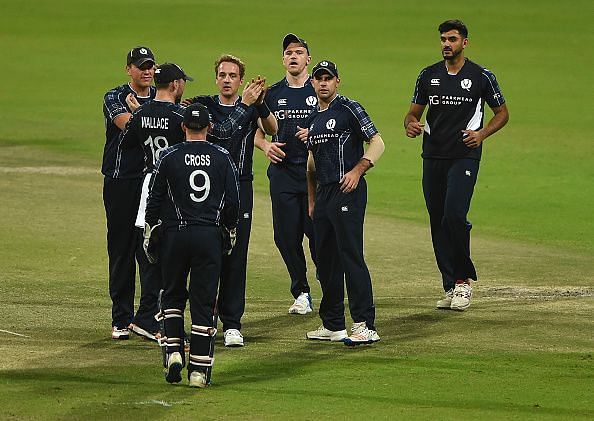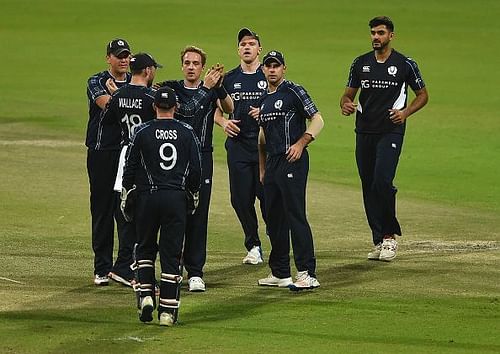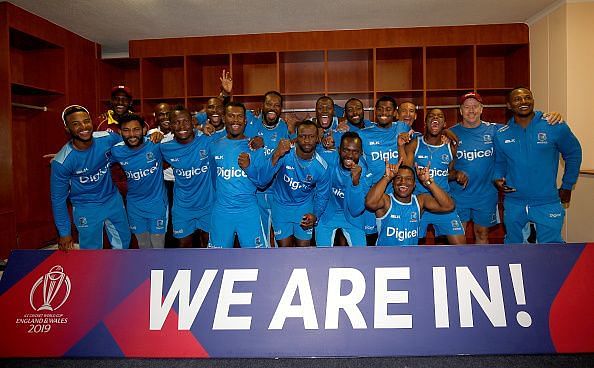
An Open letter to the ICC: Why Scotland deserves a World Cup spot

Dear ICC,
The people working in your council need not be great mathematicians, brilliant statisticians, or rocket scientists to explain why despite putting in so much effort, cricket is still limited to only two dozen countries who have a half-decent team to play the sport.
To promote cricket, you rightly target the nations that are willing to play the sport and give them assistance in doing so. However, too much of your attention is on the countries that are already ruling the cricketing world and have this game at the top of their pecking order. India, Pakistan, Australia, Sri Lanka and almost all other Test playing nations have national cricketing boards that are already doing a lot for cricket to remain relevant in their respective countries.
Ideally, your focus should thus be diverted to the countries that are still accepting the sport gradually. These are the nations that actually need assistance from a body like ICC so as to grow further in cricket. However, I am afraid that this isn't happening as much as it should.
There is an elitist logic behind keeping limiting the participating number of teams to just ten in a cricket tournament that grabs the most number of eyeballs in the world - the ODI World Cup. This might not necessarily align with the expansion and growth of the sport, purely in terms of the numbers that play it.
Ever since it was decided that the number of participating teams in the ICC World Cup 2019 would be restricted to ten, the cricket fan in me felt that something was not right. Since every other sport-governing body generally aims at popularising sport by bringing in more teams at the world stage, this restriction seems bizarre and sends a demotivating message to the affiliate nations, where cricket is still taking baby steps towards growth.
Will it help expand the glory of the cricket around the globe? I am not so sure.
Let's do the math of how the participating teams who will make it to England for the World Cup are selected. As per the basic rules, the host and the top 7 teams qualify directly for the tournament. The cut-off date to make it to this list was 30 September 2017.
Around the same time, the World Cup fate of cricketing giants like West Indies, Bangladesh, Pakistan, and even Sri Lanka was hanging by a thread. Only three of the four could have made it to the tournament through direct qualification. Sri Lanka, Pakistan and Bangladesh managed to pull up their socks in the last few weeks and found the direct road to the World Cup, but managed to do so only by a whisker. A different result in any of their last few matches could have seen them playing in the World Cup Qualifier in place of their fellow international team, the West Indies.
As many as ten teams are sweating it out for the final two spots of the tournament by playing in the ongoing World Cup Qualifier. It is worth a mention that the quality of cricket that has been displayed by the affiliates has been laudable.
A couple of days ago, the points table showed that the top five teams were separated by a margin of just two points. In the all-important game between West Indies and Scotland, which was to decide the first qualifying nation, West Indies got past Scotland with a tight victory that came by a margin of just five runs. The D/L Method and some very questionable umpiring also played a part in the result of this game.

It really is a shame that a spirited team like Scotland will be back home during the World Cup next year, watching it on their TV sets, instead of showcasing their talent on the field.
They fought hard, played their hearts out in every game, and probably gave the most thrilling results in the tournament. They tied their game against Zimbabwe, defeated one of the favourites, Afghanistan, and had West Indies in a very, very tight spot. Yet, they are now out of contention for the World Cup
The same will happen to eight more teams who won't make it to England. It will not only dent their hopes but will also lessen the glory of the age-old tournament. Only one team from the likes of Afghanistan, Ireland, and Zimbabwe can qualify for the big event.
In case you think that these countries cannot compete toe-to-toe with the Test playing nations in the World Cup, think again. These 'minnows' have done some incredible things in the previous editions of the tournament. Let us go back to 2003 World Cup, where Kenya surprised everyone by storming into the semifinal of the tournament, or to India 2011, where Ireland shocked England in the group stage, or even to 2007, where the same team pulled one over Pakistan in Jamaica.
These were instances where the affiliate nations not only defeated some cricketing superpowers but also bought an element of surprise to the proceedings of the tournament. They made it more open, unpredictable, and competitive.
Let us look at some of the upcoming sporting events of the world. The Hockey World Cup will incorporate 16 teams instead of 12. The Basketball World Cup will grow from 24 to 32 teams and the 2026 FIFA world cup will feature 48 instead of 32 nations. Meanwhile, the Cricket World Cup will shrink itself to take in just ten teams instead of 14. Things seem to be spiralling downwards for the great sport.
However, you can still choose to change this scenario in the future. While the 2019 World Cup is pretty much a done deal in terms of its qualifications, positive changes can still be incorporated for the next editions of the World Cup as well as the World T20.
Even if these teams are the "minnows" on the big stage, they still deserve to showcase their potential at a global level. That opportunity should not be snatched away from them.
The ICC website says that your values include "commitment to the global game and its great spirit"
Looking forward, let us all work towards putting those words into action.
Sincerely,
A Cricket Fan